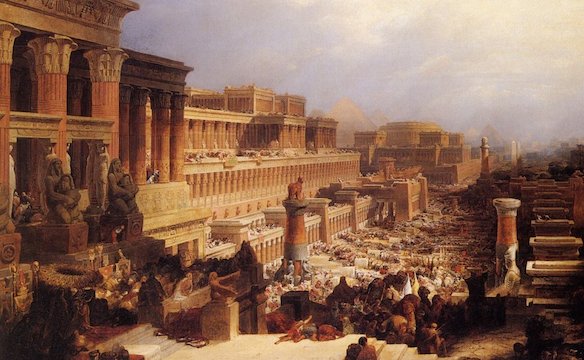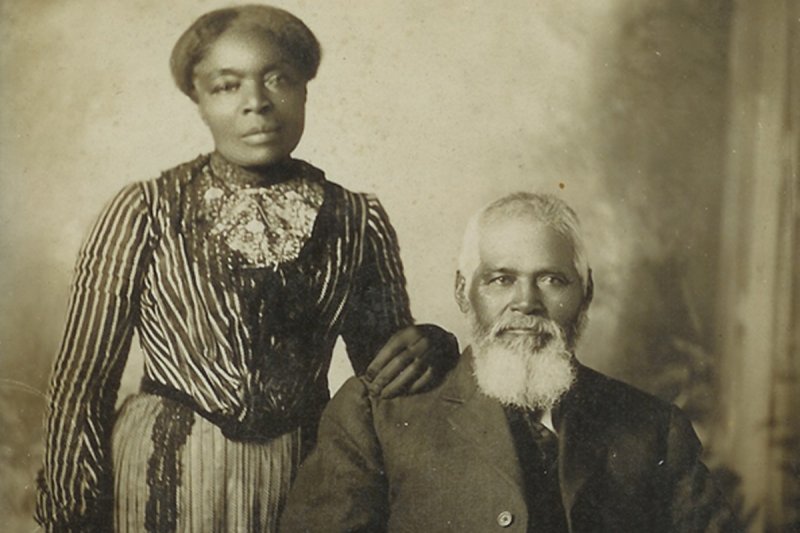Question
Gramps,
A person recently informed me that slavery was allowed by scripture. I knew it was an existing practice in the societies thereabouts. I knew that there were people who tried to justify slavery by the scriptures, but am not aware of where scripture approves of slavery.
Theodore
Answer
Dear Theodore,
There are passages in both the Old and New Testament with laws and rules regarding slavery. Some skeptics and critics have used these passages to say that slavery was permitted in the scriptures. Since almost everyone in our day agrees that slavery is wrong, that would be a very disturbing conclusion to come to. Fortunately, this is a misunderstanding. Heavenly Father does not support slavery in the way that we understand it today. I’ll show you a couple of the scriptures in question, and then explain the confusion.
First, the Israelites were given rules regarding slaves, Leviticus 25:44-45 is a good example of this:
44 Both thy bondmen, and thy bondmaids, which thou shalt have, shall be of the heathen that are round about you; of them shall ye buy bondmen and bondmaids.
45 Moreover of the children of the strangers that do sojourn among you, of them shall ye buy, and of their families that are with you, which they begat in your land: and they shall be your possession.
Exodus 21 also goes into detail about how slaves should be treated. At first glance, these passages (and others like them) do indeed appear to condone slavery. However, in order to understand these verses, we need to understand something about the culture of the time. Today we think of slavery as kidnapping someone and forcing them to labor against their will as was done to the African people in the 17th century. However, there are scriptures that show this was not the kind of slavery that the Old and New Testament referred to. Exodus 21:16 clearly prohibits this kidnapping and slavery of this fashion.
16 And he that stealeth a man, and selleth him, or if he be found in his hand, he shall surely be put to death.
Being put to death is the most serious penalty that could be imposed, showing that God did NOT approve of such behavior.
So what did “slavery” mean in biblical times? In this time period, welfare programs, such as we have now, did not exist. If a family was poor and struggling to get enough food to feed their family, or clothe and shelter them, where could they turn? Their solution to this problem was to sell them into slavery as a way to provide for them. Sometimes people would sell themselves as a slave to pay a debt. While this may sound appalling to a current day sensibilities, it is helpful to remember that a similar system existed in colonial America. Apprenticeship and indentured servitude had long served as a way of helping young boys (and sometimes girls) learn a craft or skill. A young apprentice would leave his family, and live with his new “master”. There were contracts signed, and for the time agreed upon, generally about seven years, the young man would work, basically for room, board and training. It appears that the people of the scripture times used “slavery” in a similar fashion.
Within this indentured servitude or slavery, the people were given strict instructions about treating their slaves/servants well. They were told to not make them work on the Sabbath, Exodus 23:12. And they were counseled to treat them respectfully. For example, Ephesians 6:9 prohibits threatening your slaves:
9 And, ye masters, do the same things unto them, forbearing threatening: knowing that your Master also is in heaven; neither is there respect of persons with him.
In the New Testament times many Christians were slaves to the Romans. (The Romans did practice involuntary slavery). So there was counsel given to the slaves as well. They were told to get free if they could, but not to worry if they could not. (1 Corinthians 7:21-23). And they were counseled to be obedient to their masters as they would to be to Christ Himself (Ephesians 6:5-8).
Further, Heavenly Father makes it clear in several passages, that our worldly titles of slave or master mean nothing to Him. Galatians 3:28 says:
There is neither Jew nor Greek, there is neither bond nor free, there is neither male nor female: for ye are all one in Christ Jesus.
This idea is also taught in Ephesians 6:8 and Colossians 3:11.
So we see, Theodore, that Heavenly Father loves all of His children and does not condone the mistreatment of any of them.
Gramps







